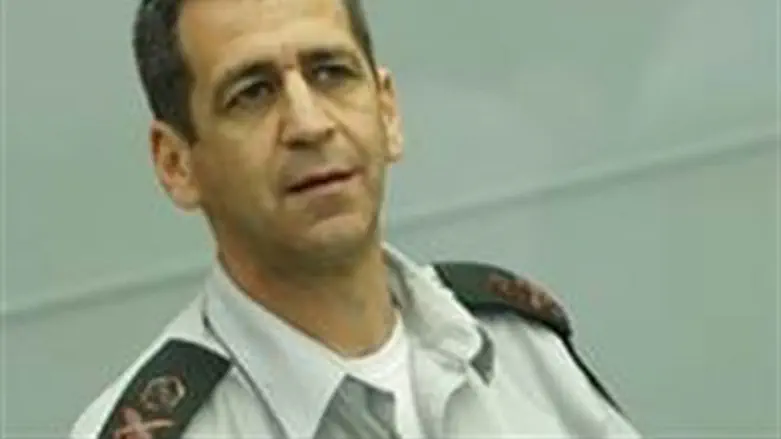
IDF Intelligence head Aviv Kochavi gave a chilling presentation Thursday morning at the Herzliya Conference on Israeli policy, telling listeners that Israel's enemies had 200,000 rockets and missiles pointed at the country, and could reach all parts of Israel – even the ostensibly safe “center” of Tel Aviv and its suburbs.
Most of the missiles have a range of about 40 kilometers – the range of Qassam and most Katyusha rockets – but thousands of missiles have ranges of hundreds of kilometers, making every location in Israel within their reach. Not only that – but the missiles are more lethal now than ever before. “The warheads on these missiles contain hundreds of kilograms of explosives, not dozens, as in the past. And their firing precision and ability to hit specific targets is also greater,” Kochavi said. The rockets are largely located in Lebanon and Syria, with a smaller amount in Gaza – and in Iran, as well, which has thousands of missiles that could reach Israel. “Every tenth house in Lebanon is now a weapons depot,” Kochavi said.
Besides conventional weapons, Israel is also facing a nuclear threat. According to Kochavi, Israel has lost the battle to prevent Iran from developing nuclear weapons; Tehran already has enough uranium for four atomic bombs, with over 100 kilos enriched to a level of 20% - more than enough for the one bomb Iranian President Mahmoud Ahmadinejad has said he would need to “rid the world of the Zionist entity.”
Whether or not Iran actually builds these bombs is not a question of technical capability, Kochavi said, but a question of political will. The ability to build the bombs is there, and whether or not they will actually be assembled is a decision that top Iranian officials, especially Supreme Leader Ali Khameini, has yet to make. “From the moment the order is given, it will take about a year to assemble the bombs,” Kochavi said. “Developing them into warheads will take a little longer.”
He added that the sanctions against Iran have not yet persuaded Tehran to change its nuclear development policy one way or the other, but that could change if the government feels it is losing control. Still, sanctions are preferable to the other alternatives, at least at this time, he said. “Only concerted international effort can persuade Tehran to halt their pursuit of the project,” he added.
Despite the fact that so far it appears that Islamists have been the big winners of the “Arab Spring,” it is not they that led the revolutions in Arab world, but the desperation of youths and young adults who face a future of unemployment and hopelessness. If the new regimes do not work quickly to raise hope for the masses, he said, the current unrest could continue for many years.
However, one aspect of the weakening of traditional Arab dictatorships in the region has negatively affected Israel; with less authority has come more porous borders, and Iran has been taking advantage of this fact to move more weapons into neighboring Arab countries. As a result, more terror attacks with Iran's backing can be expected. Kochavi said that the attack last August on the southern Negev was orchestrated by Iran, and thanks to the large amount of weapons in the region – with the Middle East now “the world's largest weapons warehouse” - similar attacks in the future are all but inevitable.
